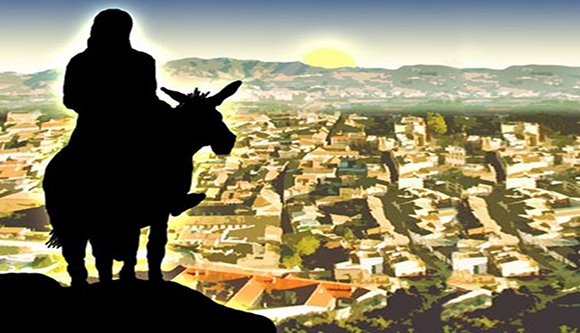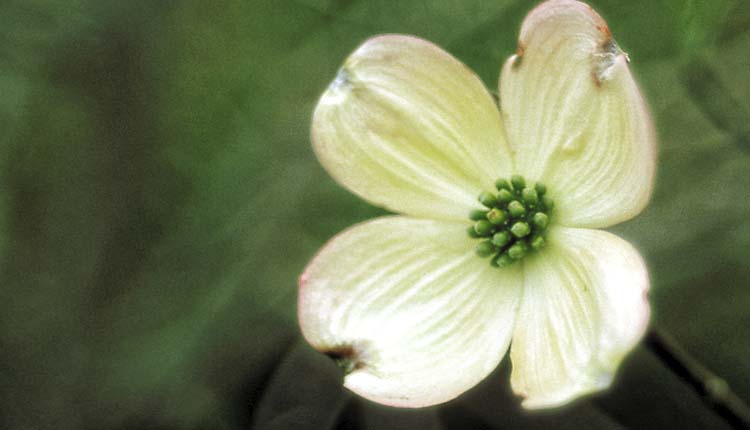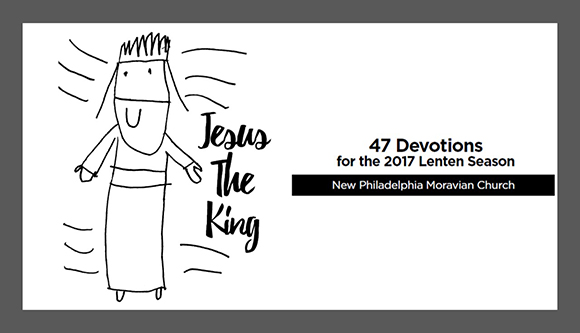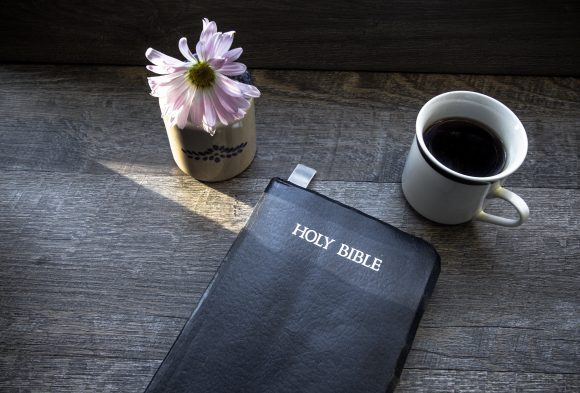Sermon – June 11, 2017 – Rev. Joe Moore, New Philadelphia Moravian
Last Sunday was a two-fer (two special occasions in one Sunday). It was Confirmation and Pentecost. Today is also a two-fer. We are celebrating Graduation Sunday and Trinity Sunday. Actually today is a three-fer since it is also the installation of our new DCE. And that’s even more appropriate for Trinity Sunday, this day in which we consider God in three persons; one in three and three in one; Creator, Redeemer, Sustainer; Father, Son, Holy Spirit.
It is joy to be able to gather as God’s people and celebrate. Last week, it was a true blessing to remember the birth of the church, when the Holy Spirit came upon the followers of Jesus and filled them with power that allowed them to become the Church. And it was a true blessing to see our young people confirm their belief in that same God- Father, Son, Holy Spirit. It was a true blessing to have them state their intention to be an active part of the Church, this church, as they live, love, and serve.
Today, we celebrate “comings and goings” as we welcome Evie Blum as our new Director of Christian Education and we say goodbye to our graduates, as they prepare to
go off to college and off to work. Both this Sunday and last Sunday have a surprising similarity. Our confirmands were marking a key transition in their lives and faith; our graduates are also marking a key transition in their lives and faith. Both come with much hard work, preparation, prayer; both come with lots of faith, lots of hope, and lots of love.
Our confirmation class last week and our graduates this week also have something in common with the disciples in today’s gospel lesson. We take a couple of steps back in the narrative from last week’s account from Acts, to the end of Matthew’s gospel. After finding the empty tomb and seeing the resurrected Jesus, Mary Magdalene took his message to the disciples that they were to return to Galilee, where they, too, would see him. So they did, they went to Galilee and found Jesus there. And they worshiped him, even though some doubted.
I’ve always found that interesting. “… but some doubted…” It’s almost a throw away line, getting overshadowed by the appearance of the resurrected Jesus and the “great commission” that he gives to his disciples. But it is too important to overlook. Far too often we, as Christians, feel ashamed when we have doubts. We don’t allow room for doubt, we are uncomfortable when do have doubt. This “throw-away” verse reminds us that it is okay to have doubts.
Even the disciples, who had been with Jesus, who had watched him die, who saw him Resurrected, even some of them had doubts. Faith without doubt wouldn’t be faith, hope without doubt wouldn’t be hope. Our faith is not a blind faith, but it is an examined faith, it is a studied faith, it is an educated faith. It is a faith that has been tested, questioned, and challenged. It is a faith that allows us to have considered all the reasons to believe, and all the reasons to NOT believe, and yet we still find ourselves believing. It’s okay to doubt, it strengthens our belief.
The eleven disciples meet the resurrected Jesus in Galilee. There they worship him (though some doubt). There Jesus says to them “All authority in heaven and on earth has been given to me. Go therefore and make disciples of all nations, baptizing them in the name of the Father and of the Son and of the Holy Spirit, and teaching them to obey everything that I have commanded you. And remember, I am with you always, to the end of the age.”
These verses, the conclusion of Matthew’s gospel, provide a roadmap (or an action plan) for Christians. They tell us what to do as followers of Jesus, as members of the church. Whether we are newly baptized or have recently confirmed our faith, whether we are beginners or graduates, young or old, these verses in Matthew show us the way. They tell us what to do whether we are coming or whether we are going.
The disciples come to Galilee, they come to where Jesus tells them to come, to where Jesus wants them to be. We come to church, to where Jesus tells us to come, to where Jesus wants us to be. We come together as the church. The disciples worshipped God on that mountain in Galilee. They praised the risen Lord. “O Lord, our Lord, how majestic is your name in all the earth.” We worship God in this church. We praise the risen Lord. “O Lord, we praise your name, O Lord, we magnify your name, Prince of Peace, mighty God.”
The disciples come and worship and listen to Jesus. We come to church and worship and listen to Jesus. We hear Jesus speak to us in the words of Scripture. We listen to Jesus speak to us as we pray. We hear Jesus as we listen to each other sing the songs of faith.
The disciples come and worship and listen to Jesus and receive the power of the Holy Spirit. Though not as explicit as it is in Acts, it is clear that the disciples receive the power of the Holy Spirit as they gather in Galilee to worship and listen to Jesus. Otherwise they couldn’t do what he tells them to do. If they didn’t have the power and authority of the Holy Spirit, they couldn’t baptize and teach and make disciples of all nations. And we know that they did do that. Because we are here today. Having been baptized and taught and made into disciples of Jesus. We, too, have received the power of the Holy Spirit. And we are called to go and do the same for others.
The disciples came to Jesus and Jesus tells them to go into the world. We come to Jesus, we come to church, and we are told to go into the world. We are called to go into the world and to do what the disciples did, to make disciples of all nations, to baptize and teach. We are called to go in the name of the Father, the Son, and the Holy Spirit. We are invited to come, and then we are called to go. The first part is about us, it is about our needs. We need to worship because we need to respond to God’s presence in our lives. We need to listen to Jesus because we know the truth of his words, the power of his teaching. We need to be reminded of his love. We need to receive the Holy Spirit because we that is how we know God. It is how we feel his presence and experience his love. The first part, the invitation to come, is about our needs, our wants, our desires.
The second part, the call to go, is about others. It is about making disciples by sharing our knowledge of God. It is about baptizing them into the death (into the love) of Jesus. It is about teaching them through the power of the Holy Spirit about who God is, what Jesus did, and how the Holy Spirit does. We come in for ourselves and we go out for others.
However, sometimes we get stuck in the first part. We come in and we stay in. We focus on ourselves and on our needs. We can all understand the desire to stay where we are. Our graduates, as excited as they are about having graduated, I’m sure that they are also a little bit nervous and anxious about what comes next- about leaving the place where they are comfortable, where they are at home. But they know that they can’t do that. If they want to continue to grow, if they want to fully become who God has created them to be, they must go.
And we must go. We must go out into the world and make disciples. We must go and baptize. We must go and teach. As the church, we gather for worship, we come and listen to Jesus, we receive the power of the Holy Spirit. And now let us go. Let us go and share what we have- our faith in God our Creator, the love of Jesus our Redeemer, and the power of the Holy Spirit our Sustainer.












